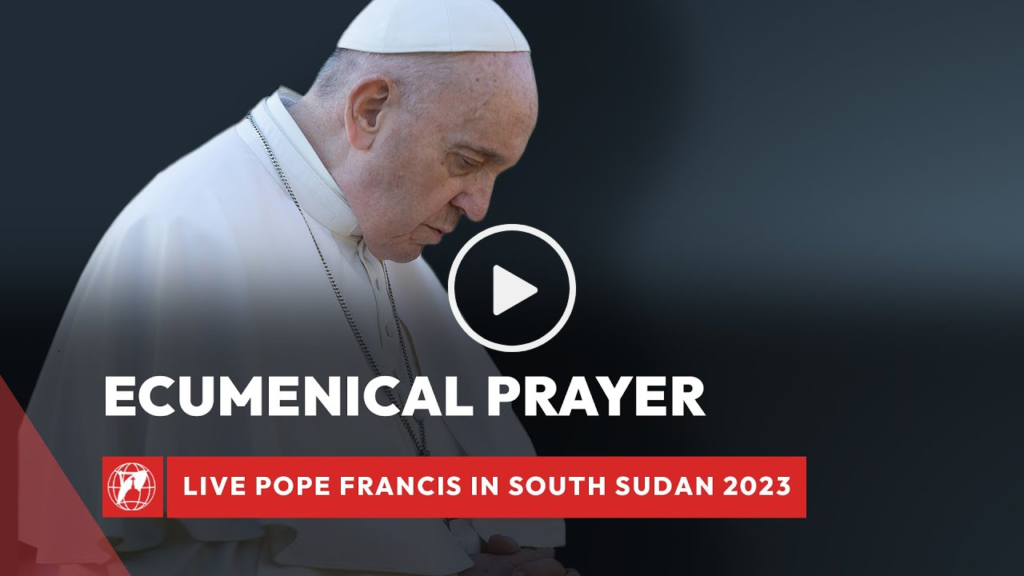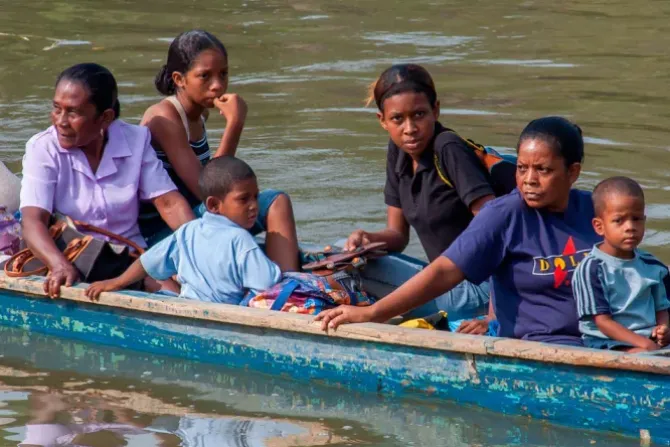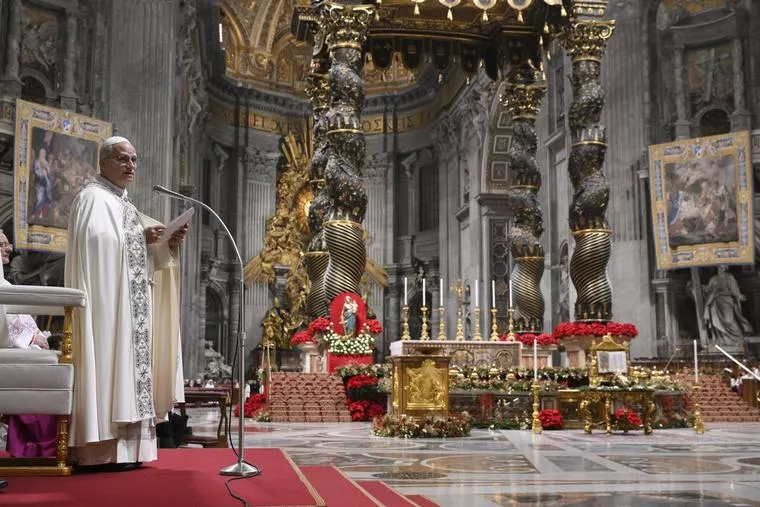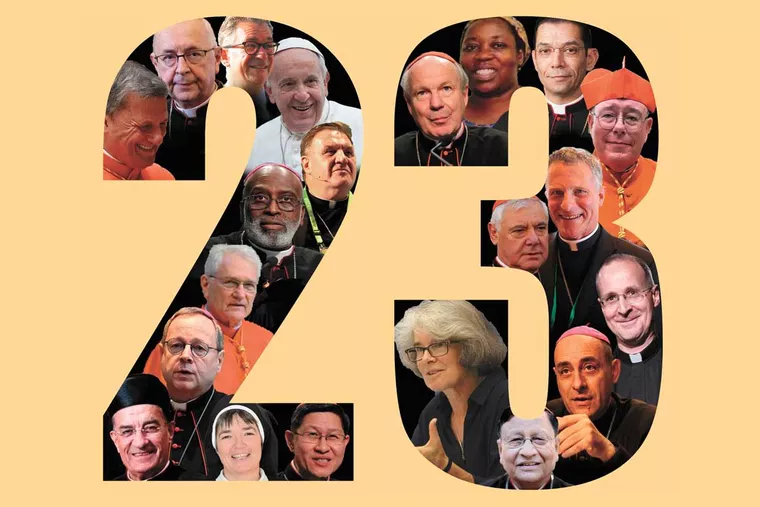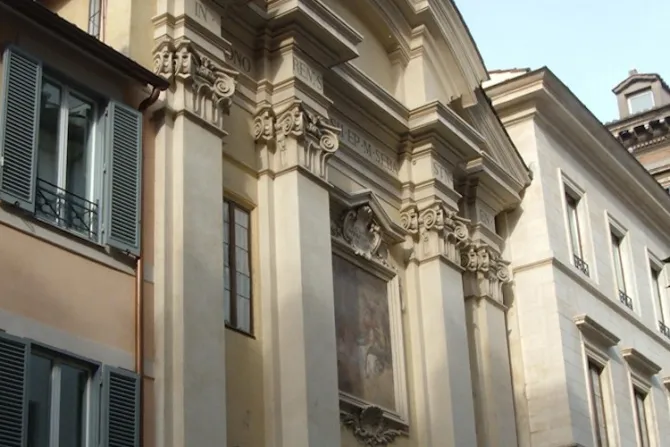In the weeks leading up to the publication of a new Vatican document on human dignity, some speculated that the text would send shockwaves throughout the Church.
After all, the same office responsible for Dignitas Infinita (Infinite Dignity, the Dicastery for the Doctrine of the Faith (DDF), had caused worldwide controversy just four and a half months earlier, with the promulgation of Fiducia Supplicans, the Dec. 18 declaration that approved non-liturgical blessings of same-sex couples.
But based off the initial reaction to Dignitas Infinita, published April 8 under the direction of DDF prefect Cardinal Víctor Manuel Fernández, Fiducia’s principal author, it seems that something of the opposite has occurred.
“Anyone looking — with hope or fear — for some revolution in Church doctrine will not find it here,” Stephen White, executive director of the Catholic Project at The Catholic University of America, told the Register about the new text.
Instead, experts consulted by the Register agree that the new declaration is both a compelling rearticulation of the Church’s teaching on human dignity and a timely application of those principles to some of the most controversial issues of the day — most notably gender theory.
Gender Theory
Although Dignitas Infinita also addresses issues like abortion, war and poverty, its six-paragraph treatment of gender theory and sex-change procedures has garnered the most attention from both Catholic and mainstream media. And for good reason: The document is the first time that the Church’s universal teaching authority has weighed in on the topic with such focus — with some Catholic experts on gender and sexual identity describing the DDF document as nothing short of a game changer.
For instance, Abigail Favale described the declaration’s statement that “all attempts to obscure reference to the ineliminable sexual differences between man and woman are to be rejected” as a “bombshell sentence.”
Favale, an authority in gender from a Christian perspective at the University of Notre Dame’s McGrath Institute for Church Life, told the Register that the statement “casts a wide net,” not only saying that medical attempts to alter one’s sexual appearance are inconsistent with human dignity, but so is the use of “language that would obscure the reality of sexual difference.”
Favale also pointed to a similar sentence that emphasized that “any sex change intervention” threatens “the unique dignity the person has received from the moment of conception” as a clear prohibition of not just surgical procedures, but also hormonal interventions that alter secondary sexual characteristics.
“That is a pretty clear line in the sand that I find to be a welcome clarification from the Vatican, because I think that effective pastoral practices can only really arise from clarity like that,” said Favale, author of The Genesis of Gender: A Christian Theory.
Notably, Dignitas Infinita did not include some controversial passages that were reported to be in a 2018 Vatican draft of the text, such as language that said one’s sexual identity is “composed of physical, psychological and social elements.”
Favale told the Register she was “honestly surprised” by Dignitas Infinita’s clarity, given that documents from the Francis pontificate “have tried to lean into more ambiguous language at times.”
Abortion, Surrogacy and Euthanasia
Although perhaps less of a breakthrough, the document’s interventions on other notable social issues also received praise — mostly.
Jennifer Lahl, the founder and president of the Center for Bioethics and Culture, applauded Dignitas Infinita’s “strong statement” in opposition to surrogacy and said she hopes “other world leaders will adopt this position.”
Lahl told the Register that she particularly appreciated the document addressing women who choose to become surrogates, which “acknowledged the importance of the maternal child bond and that women are not to be an instrument to be used by others, altruistically or commercially, in the creation and dignity of a new person.”
Regarding abortion, the moral theologian Charles Camosy said that Dignitas Infinita didn’t necessarily introduce any new principles, but it did make “new emphases, ones which address new signs of our times.”
In particular, Camosy said that the document’s invocation of the prophet Isaiah’s warning against those who “call evil good and good evil” is a welcome response to a “new moment in the extremism of the abortion debate” and urges readers “to show courage in speaking the truth about abortion.”
At the same time, he said the document’s treatment of assisted suicide and euthanasia was “good, but frankly not great.”
Camosy, who has appointments at both Creighton Medical School and St. Joseph’s Seminary in Dunwoody, New York, said Dignitas Infinita could have highlighted how the push for “death with dignity” is now killing not only the critically and terminally ill, but also those with early- and mid-stage dementia.
“This was a missed opportunity to tie the issues of resistance of physician-assisted suicide and euthanasia directly to care for the equal dignity of the disabled,” Camosy told the Register.
Doctrine on Dignity
Beyond particular social issues, Dignitas Infinita also offered a fresh articulation of the Church’s broader doctrine of human dignity, which similarly received mostly praise from Catholic experts.
White with the Catholic Project highlighted a passage on the relationship between dignity and human freedom, particularly the document’s emphasis that freedom is a “marvelous gift from God” that can destroy itself and obscure human dignity when it’s cut off from objective truth.
“When the Church denounces those ideas or actions which are contrary to human dignity, she is not restricting freedom, but defending it,” said White. “At the heart of the Church’s moral teaching is the insistence that, as Jesus himself said, ‘The truth will set you free.’”
However, some have contested the document’s eponymous claim “that every human person possesses infinite dignity.” Catholic philosopher Edward Feser claimed that this amounted to “excessive human self-regard,” but Thomist Dominican Father James Rooney said that the concept can be understood in a way in which man’s dignity is both dependent upon God and also not infinite in the same way that God’s dignity is.
Others praised Dignitas Infinita for drawing heavily on the teachings of recent popes, especially St. John Paul II. The frequent references to John Paul II, Benedict XVI and Paul VI are a notable departure from other recent DDF documents, like Fiducia Supplicans, which have tended to cite papal teaching almost exclusively from Francis.
Notably, however, the document did not cite John Paul II’s encyclical Veritatis Splendor, which defended the existence of moral absolutes.
Camosy told the Register that although Dignitas Infinita included appropriately strong reactions against relativism and “circumstantialism,” such as when it said that the death penalty violates human dignity “regardless of the circumstances,” the document would have been stronger if it had “called out specific actions as intrinsically evil and/or as violating exceptionless moral norms.”
Pushback and Pastoral Application
Camosy sees the document, which threads the principle of human dignity through a panoply of social issues that mainstream society usually sees as unrelated, as an opportunity for Catholics to quit picking and choosing and embrace the fullness of the Church’s social teaching.
“I think it invites people who have supported Pope Francis and his magisterium on some other issues central to his pontificate to take a new and harder look at some issues where they might disagree and be challenged,” he said.
But not everyone seems to have accepted that invitation, with progressive groups offering sharp rebukes of the Holy Father over Dignitas Infinita.
“We don’t buy that women who choose abortion and Catholics who support abortion rights are ‘evil’ as this document suggests,” said Jamie Manson of Catholics for Choice, a group that is not recognized as Catholic by Church leaders. “If Pope Francis spent a fraction of the time encountering people on this issue as he does on others, we believe that he would also begin to see the complexities.”
Francis DeBernardo, the director of New Ways Ministry, offered another criticism.
“The Vatican is again supporting and propagating ideas that lead to real physical harm to transgender, nonbinary, and other LGBTQ+ people,” said DeBernardo, whose organization has been criticized by the U.S. Conference of Catholic Bishops, although Pope Francis recently met with one of its founders.
Favale, who in addition to her academic work is also engaged in pastoral outreach to trans-identifying Catholics, understands how some people could feel hurt after reading Dignitas Infinita. She says she’d like to see Catholics embrace not only the new declaration’s doctrinal precision, but also the pastoral emphasis of other documents of the Francis pontificate, such as the DDF’s recent clarification that trans-identifying people could be baptized “as long as there is no risk of causing scandal or confusion to other Catholics.”
Favale told the Register that “[p]astoral nuance without clarity is a problem. But clarity without the pastoral nuance will also be a problem.”
At the same time, she sees Dignitas Infinita’s “clear line” against any attempt to obfuscate one’s God-given sexual identity as a “guardrail that you can hold as you wade into complex pastoral interactions with people.”
It’s likely that Dignitas Infinita’s treatment of gender theory could prompt pastoral engagements on the issue at a more local level — including from the USCCB. The U.S. bishops reportedly had a draft document on gender theory prepared in 2018, but it was shelved at the request of Vatican officials, who wanted to address the issue first.
Now that the Vatican has offered its own authoritative teaching, the U.S. bishops may soon move to offer some collective guidance, although a USCCB representative did not respond to the Register’s request for an interview on the topic prior to publication.
This article was originally published on National Catholic Register.


